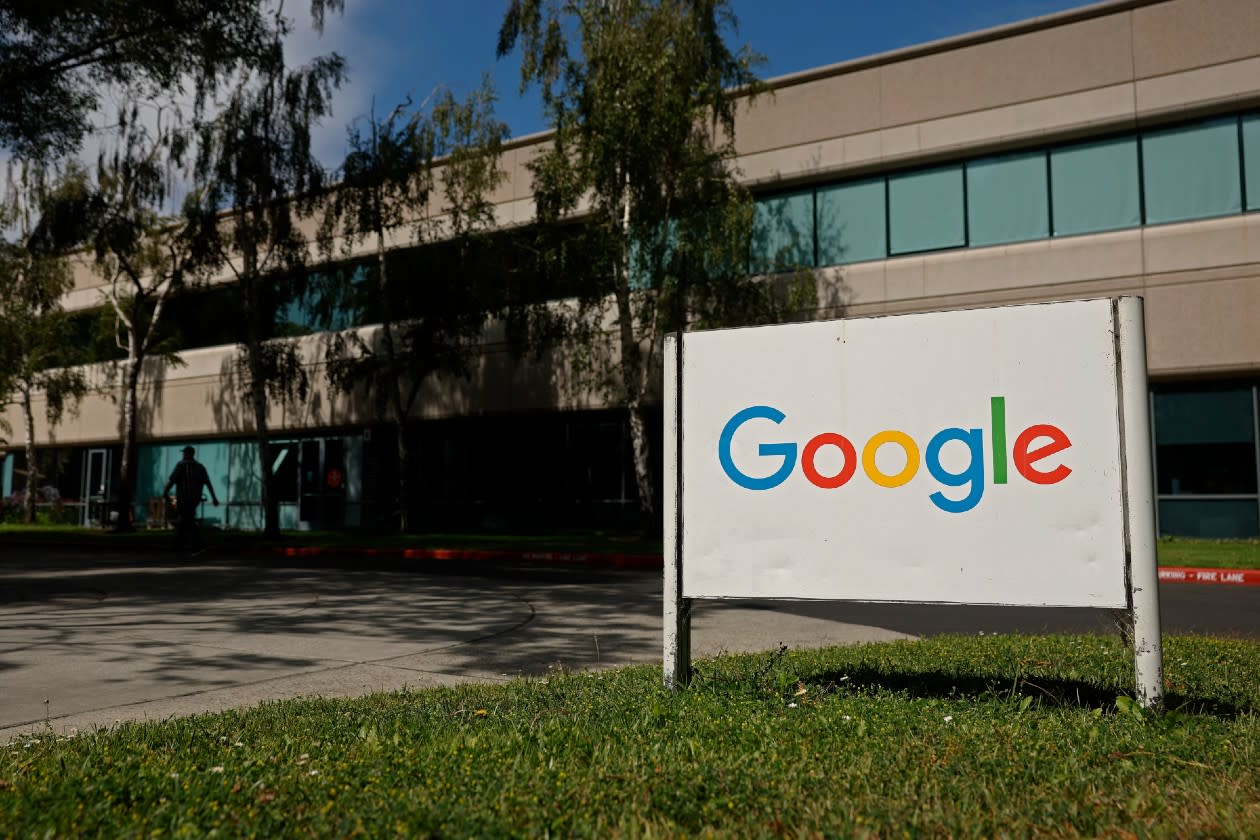Alphabet reported a 15% rise in third-quarter revenue, ignoring currency moves, to $102.3bn ($99.9bn expected).
The core advertising business, which includes Google Search and YouTube, saw revenue rise 13% to $74.2bn ($71.9bn expected). Google Cloud revenue increased by 34% to $15.2 billion, with a cloud backlog of $155bn.
Operating income rose 9% to $31.2bn, with margins at 31%.
Free cash flow was up 39% to $24.5bn. There was a net cash position, including leases, of $64.8bn at the quarter's end.
The company increased capital expenditure plans, expecting to invest around $91-93bn in 2025.
The shares were up 7.24% in pre-market trading.
Our view
What a difference a year makes. It hardly seems like yesterday that the narrative around Alphabet was dominated by AI disruption and the poor execution of its Gemini language model. Fast forward a few quarters, and the clouds have lifted. It’s no fluke - Alphabet has nailed the execution of its recent Gemini models, integrated AI into Google search, driven cloud growth, and made strong progress in other areas like YouTube.
Question marks do still linger, and rightly so. The rise of language models presents both an opportunity and the most meaningful risk we’ve ever seen for the search business. Google search has long been the gatekeeper to the internet, but times are changing.
The strength of Google search in recent quarters is a sign that AI is already delivering incremental improvements. AI overviews are rolling out to more users, and the numbers back up commentary that engagement is improving. Advertisers are still getting bang for their buck – which was previously a concern.
Beyond its dominant search presence, Google benefits from a wide array of high-quality businesses, with its cloud division the key growth engine. Significant infrastructure investment is being made to meet rising demand for computing power, and with demand still outpacing supply, there's a good pipeline of revenue visibility heading into 2026.
It has the cash flows to stomach the increased investment, but over time, it will lead to higher costs passing through the income statement. The expected hit to margins hasn’t come yet, with impressive efficiency improvements doing their job.
YouTube continues to perform well, with the monetisation of Shorts ramping nicely. There’s innovation from so called ‘other bets’ in the mix too, perhaps the most important being Waymo where Alphabet is the majority shareholder.
Regulatory scrutiny remains a key issue to monitor. However, Alphabet avoided a major setback in September when the US courts ruled on an ongoing antitrust case. The outcome - focused on measures like limited data-sharing and restrictions on exclusivity deals for Google Search - fell well short of the structural breakup scenarios that some had feared.
Cutting-edge models and unmatched distribution mean Alphabet is poised to dominate if it can execute well. The market had prematurely written the company off in the AI race, a view that looked short-sighted, and we’re pleased to see that starting to shift.
That said, we remain slightly cautious on the valuation side. Whether the recently improved earnings multiple can be sustained depends heavily on how search evolves, and that remains a risk to monitor.
Environmental, social and governance (ESG) risk
The technology sector is generally medium/low risk in terms of ESG, though some segments are more exposed, like Electronic Components (environmental risks) and data monetisers (social risks). Business ethics tend to be a material risk within the tech sector, ranging from anti-competitive practices to intellectual property rights. Other key risks include labour relations, data privacy, product governance and resource use.
According to Sustainalytics, Alphabet’s overall management of material ESG issues is strong.
Monopoly and market dominance concerns are a key regulatory risk. It remains the subject of antitrust investigations in several countries, leading to calls from both EU and US regulators for the breakup of its online advertising business. Alphabet’s management of data handling is strong, aided by its deep pockets. But this remains a key risk to monitor in the evolving landscape of AI.
Alphabet key facts
All ratios are sourced from LSEG Datastream, based on previous day’s closing values. Please remember yields are variable and not a reliable indicator of future income. Keep in mind key figures shouldn’t be looked at on their own – it’s important to understand the big picture.
This article is original Hargreaves Lansdown content, published by Hargreaves Lansdown. It was correct as at the date of publication, and our views may have changed since then. Unless otherwise stated estimates, including prospective yields, are a consensus of analyst forecasts provided by LSEG. These estimates are not a reliable indicator of future performance. Yields are variable and not guaranteed. Investments rise and fall in value so investors could make a loss.
This article is not advice or a recommendation to buy, sell or hold any investment. No view is given on the present or future value or price of any investment, and investors should form their own view on any proposed investment.


